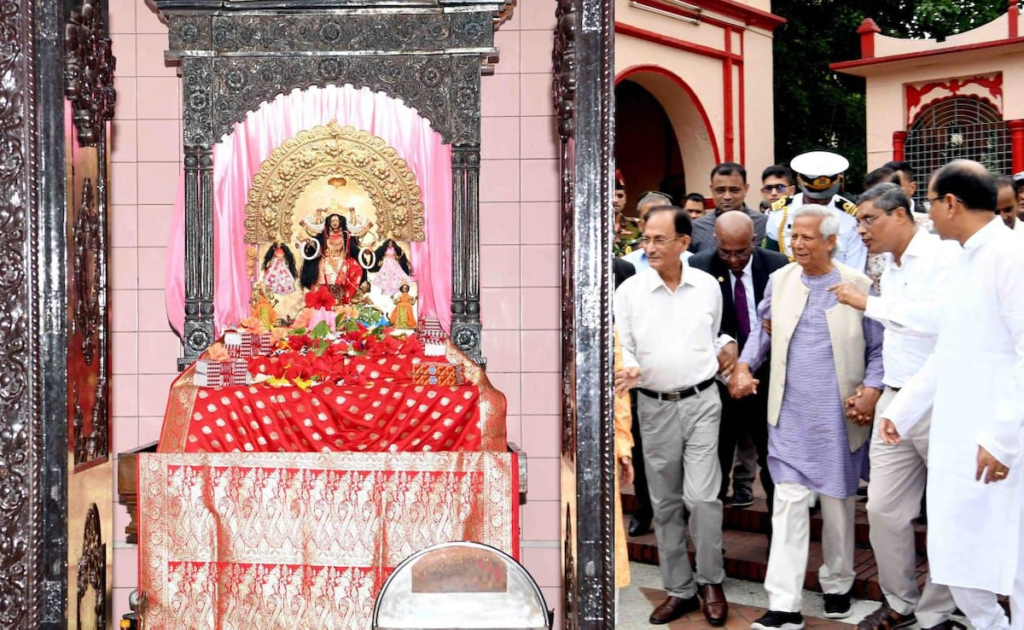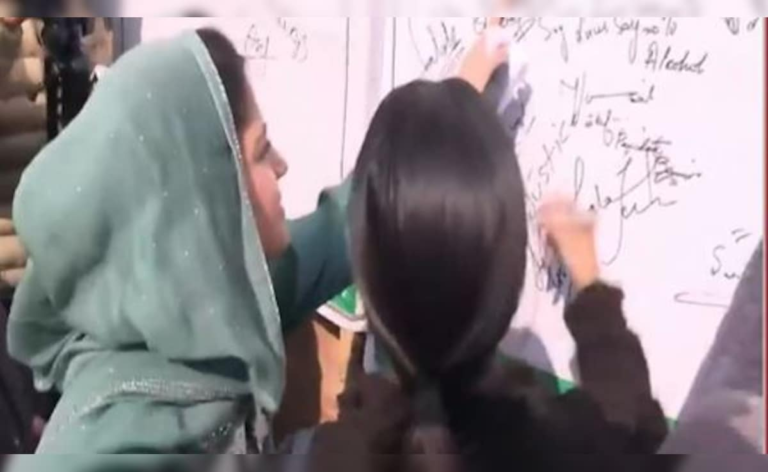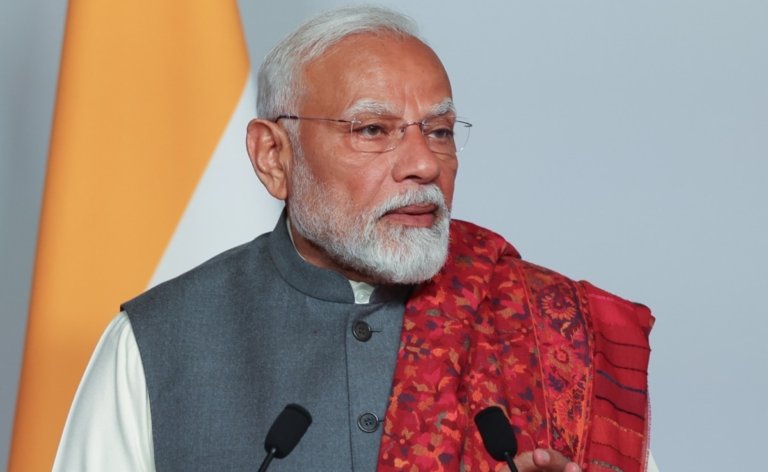
Mr Yunus is the head of the interim government in Bangladesh.
Making an important pitch for unity at a time when there have been reports of violence against minorities – including Hindus – in Bangladesh, Muhammad Yunus, the head of the interim government, visited a temple, met Hindu leaders and said the rights of everyone should be ensured, irrespective of religion.
After visiting the Dhakeshwari National Temple in Dhaka on Tuesday, Mr Yunus, who is a Nobel Peace Prize awardee, also urged people to “exercise patience” and judge his government on the work it does. The Nobel Laureate had taken oath as the head of the government in Bangladesh last Thursday, three days after prime minister Sheikh Hasina was forced to resign in the face of widespread student protests.
Mr Yunus, who met representatives of Hindu groups, including leaders of the Bangladesh Puja Udjapan Parishad and Mahanagar Sarbajanin Puja Committee, said, “Rights are equal for everyone. We are all one people with one right. Do not make any distinctions among us. Please, assist us. Exercise patience, and later judge what we were able to do and what we were not. If we fail, then criticise us.”
“In our democratic aspirations, we should not be seen as Muslims, Hindus, or Buddhists, but as human beings. Our rights should be ensured. The root of all problems lies in the decay of institutional arrangements. That is why, such issues arise. institutional arrangements need to be fixed,” he was quoted as saying by The Daily Star, a Bangladeshi newspaper.
This is not the first time Mr Yunus has spoken out against the attacks on minorities, which he had earlier termed heinous.
“Are they not the people of this country? You (students) have been able to save this country; can’t you save some families? They are my brothers… we fought together, and we will stay together,” he had said
‘Monster Is Gone’
Speaking to reporters on Sunday, the head of the interim government, whose position is akin to that of prime minister, had praised the students who led the movement against Ms Hasina.
“I said (to the students), ‘I respect you… I admire you. What you have done is absolutely unparalleled, and because you ordered me to do this (head interim government) I accept… Finally, this moment, the monster (Ms Hasina) is gone,” Mr Yunus had said after a meeting with students.
Seeds Of Turmoil
Trouble had been brewing in Bangladesh since before the January 7 elections, which was won by Sheikh Hasina’s Awami League in a landslide, but the electoral exercise was widely seen as being far from free and fair.
A fresh wave of protests led by students began in June – in which over 450 people have been killed – after a Bangladeshi high court reinstated 30 per cent reservation in government jobs for family members of freedom fighters and veterans from Bangladesh’s 1971 War of Independence. The quota was later scaled back by the country’s Supreme Court but Ms Hasina’s handling of the protests and her alleged use of an offensive label for the protesters infuriated students.
Protests continued with students demanding that Ms Hasina step down and clashes between agitators and the police left over 100 dead and dozens injured across the country on August 4.
The next day saw lakhs of students flooding the streets and heading towards the prime minister’s official residence, Ganabhaban, forcing Ms Hasina to resign and flee to India.
Violence continued in some places even after Ms Hasina resigned and there have been reports of minorities being targeted.




